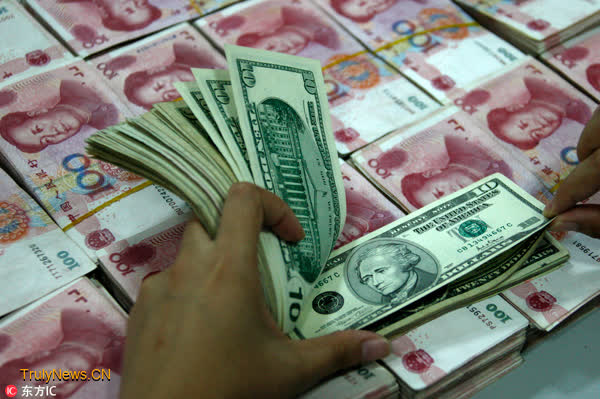
The latest monthly report released by the Society for Worldwide Interbank Financial Telecommunication shows that in June the renminbi accounted for 4.61 percent of global payments based on transaction volume, up 0.14 percentage points from May and nearly double the figure in November 2022, maintaining its position as the world’s fourth most-used payment currency for the eighth consecutive month.
Among the many reasons for this are, undoubtedly, China’s massive trade and investment volumes as the world’s largest exporter and second-largest importer of goods, as well as China being a major user of foreign capital and a significant overseas investor. Besides, China’s adherence to responsible macroeconomic policies has increased the credibility of the renminbi.
Since the beginning of 2024, the demand for the renminbi in trade financing from overseas markets has increased. Data show that in June the total amount of all currency payments globally decreased by 3.23 percent compared to May, but that of RMB payments by only 0.22 percent, resulting in a corresponding rise in the renminbi’s global payment share.
Analysts believe that influenced by the Federal Reserve maintaining higher interest rates, an increasing number of multinational corporations and enterprises from emerging market countries are trying to use the renminbi as a trade financing currency. Comparatively, the renminbi exchange rate fluctuations are relatively stable, and the financing rates are significantly lower than those of the dollar.
Although the renminbi continued to depreciate against the dollar in June, that did not stall the increasing use of the renminbi in cross-border trade settlements. That is because, compared to other emerging market currencies and currencies of developed countries such as the Japanese yen, which have experienced significant depreciation, the renminbi has maintained strong resilience.
To continue advancing the internationalization of the renminbi, the policy system for cross-border use of the renminbi should be improved, financial markets further opened up, access levels enhanced, the liquidity of RMB financial assets improved, offshore liquidity supply mechanisms perfected, and monetary cooperation deepened, so that the renminbi can play an active role in bilateral local currency settlement and currency swaps, and seize opportunities in energy transition and payment innovation.
-Economic Daily